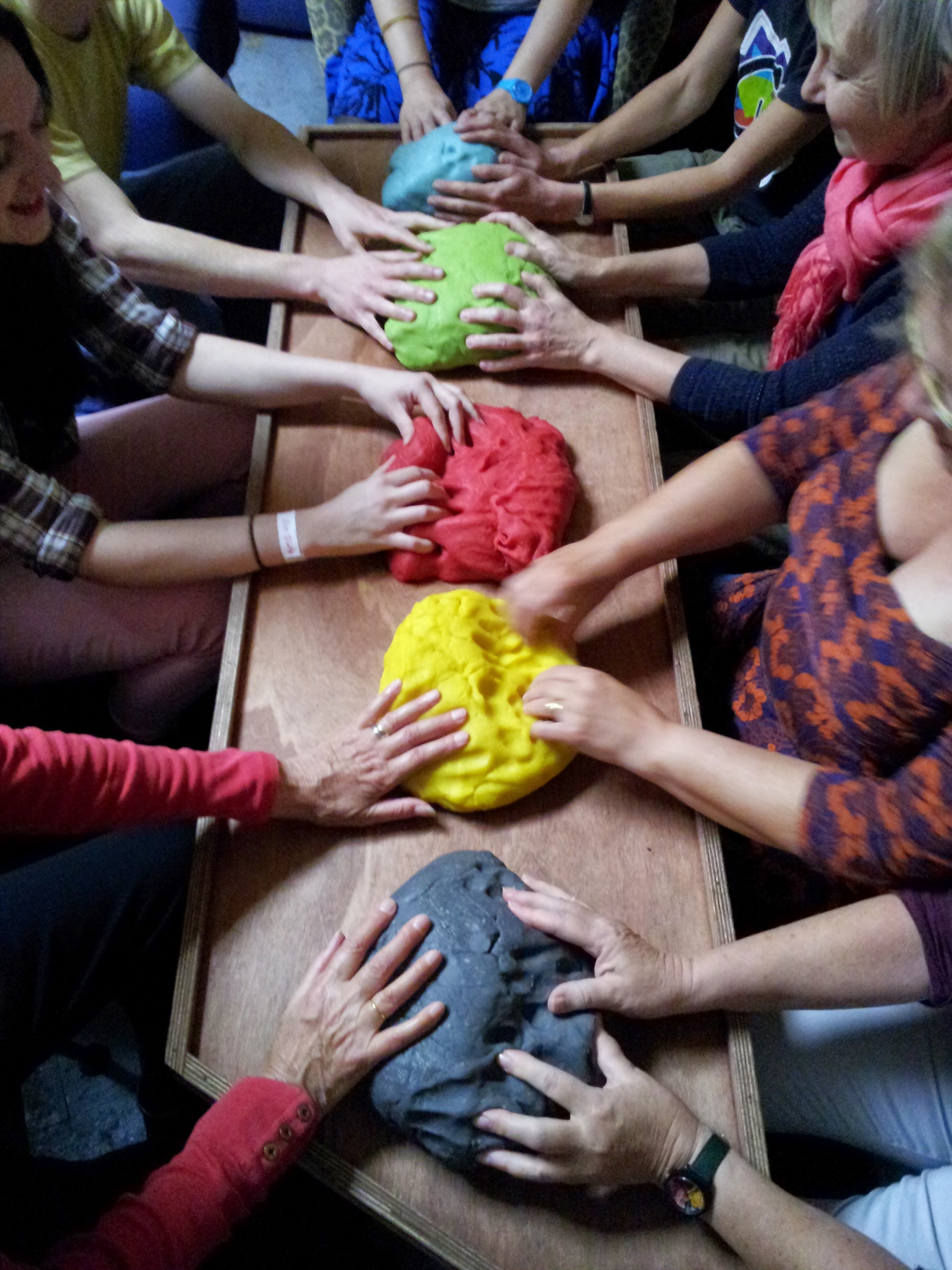Work songs historically provided a different purpose depending on their context, but my interest in work songs is primarily where they are used to support the physical experience of labour: to synchronise manual work, and support the worker to maintain the correct energy levels for the job.
Starting with an interest in sea shanties, I looked to capture the gesture of work, of work songs.
What would a female equivalent to a sea shanty be? Following research at the English Folk Dance and Song Society’s Vaughan Williams Memorial Library in Cecil Sharpe House, I was directed towards waulking songs, a Hebridean song that developed from the process of waulking the tweed. Women sat around a large table beating tweed that had been soaked in a urine mordant and passing it around the table. The rhythm of the song would keep them in sync.
I was fortunate to work with natural voice practitioner, Frankie Armstrong on an experimental workshop in Cardiff in 2014, where we simulated both the movements and sounds, the vocables, of waulking songs, as we beat the rhythms into large coloured balls of play dough.
This is a very similar process to the sea shanties which evolved to accompany different marine tasks - the rhythm required of hoisting the mainsail was different from scrubbing the deck.
Clog dance evolved more as a communication technique over the intensely loud machinery in cotton mills. I played with this idea, trying to capture the gesture through a drawing medium, dancing into powdered graphite on a residency with Metal in Essex.
Further research led me to lullabies, and the complex social histories a seemingly soothing and benign cultural form can reveal. Although the gentle, sleep-inducing rhythm of lullabies is similar, the content is often heart-rending, implying the emotional turmoil of Postnatal Depression (as it would become known), infanticide, and the yearning for their own children that wet nurses experienced, when separated from them to support wealthier women.
I talk about this in an illustrated talk with folk singer Alison Frosdick at Women of the World Festival in 2012.
Clog dance on graphite, 2014, Metal Time and Space Residency, Chalkwell Hall, Essex.
Women’s Work Songs collaboration with Frankie Armstrong. Made in Roath, 2014.
Talk about Women’s Work Songs at Women of the World Festival, Southbank Centre, London, 2012.


